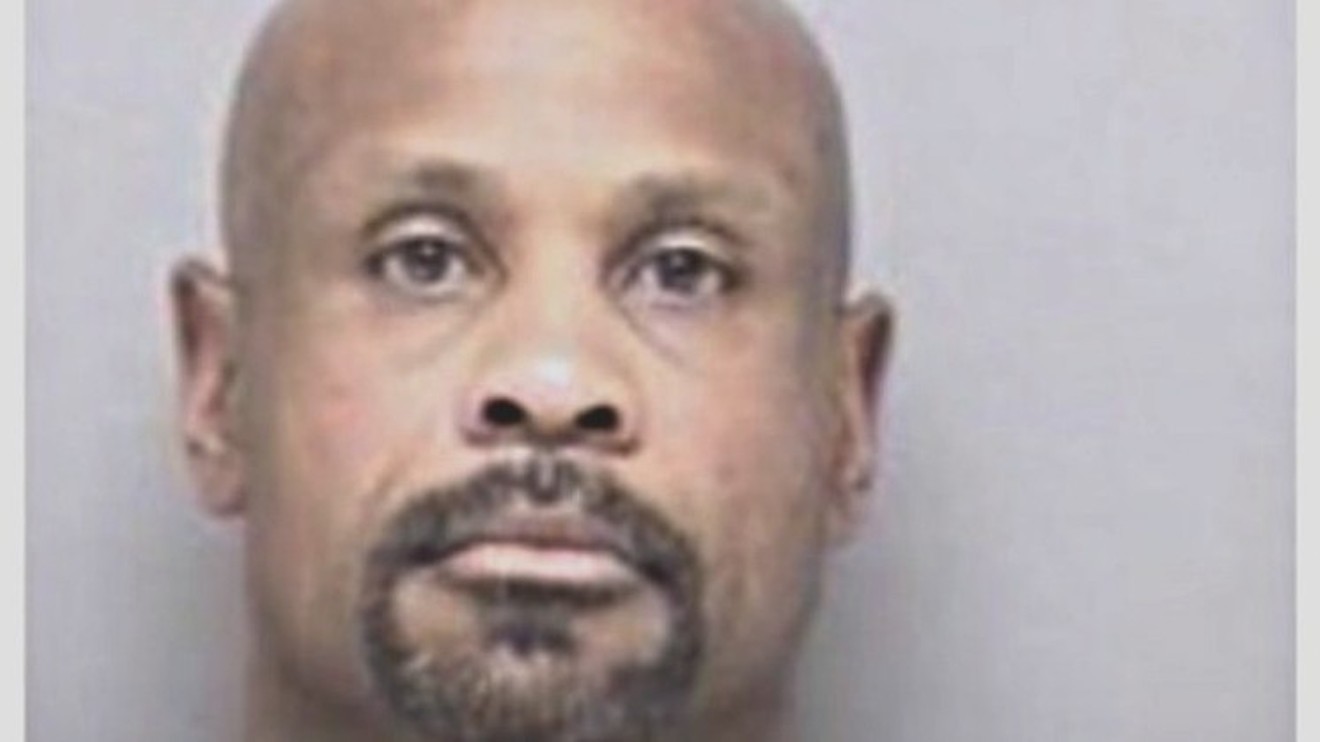A document submitted to the court by Fine on January 14 lays out the reasons why Tumpkin deserves a harsher sentence and castigates prosecutors and defense attorneys for attempting to justify punishment she sees as a wrist slap by, in her view, minimizing his crimes while casting aspersions on her character.
Her arguments didn't sway Goodbee. On January 18, the Friday before a holiday weekend, the judge quietly filed an order in advance of a planned February 1 hearing that deems the plea pact reasonable and states that he'll accept it after prosecutors jump through a few more legal hoops.
The order is accessible below, along with Fine's response. But in a section labeled "Background," Goodbee notes that "the Defendant was charged by Complaint/Information on January 30, 2017, with eight charges; five counts of Second Degree Assault...and three counts of Third Degree Assault. ... The charges are all filed as crimes of domestic violence against the same victim."
He acknowledges that "the case took an atypical path to its present setting. An appeal from a lower court ruling created a meaningful delay as that process completed. The matter is now before this court for proposed entry of a guilty plea. The court is advised that this Defendant will plead guilty to one count of Third Degree Assault, as a class one misdemeanor. As part of that guilty plea, he will admit that the assault he committed on the Victim was an act of domestic violence. The date range of the criminal conduct within the proposed guilty plea is from February 27, 2015, to November 20, 2016. This is the calendar range of the original charges in the Complaint."
A short time later, Goodbee presents his list of Fine's objections to the plea agreement:
1) The People have not consulted with her sufficiently as required under C.R.S. 24-4.1-302.5.Tumpkin "has no formal record of any prior convictions, felony or misdemeanor, in Colorado or elsewhere," the judge maintains. "If accurate, this factor favors acceptance of the proposed guilty plea."
2) The justice system has failed to respect her right to be heard at hearing.
3) The proposed guilty plea is "inconsistent with the duty of prosecutors to only prosecute charges which are supported by probable cause."
4) The People’s assessment of the strength/weakness of the evidence of guilt is wrong.
5) The offered guilty plea is inconsistent with other similarly situated defendants.
6) The offered guilty plea sends the wrong message to the community at large and other victims given the Defendant’s former employer and employment.
7) Recent conduct by this Defendant is concerning to Ms. Fine.

Former CU Buffs head coach Mike MacIntyre was ordered to make a $100,000 donation to domestic-violence causes because of his actions after Pam Fine told him that Joe Tumpkin was abusing her.
YouTube file photo
In mulling over his decision, Goodbee points out that the Colorado Supreme Court has given prosecutors "uniquely broad discretion in charging offenders. ... Filed cases that are not dismissed either proceed to a trial or are handled through plea negotiations. Given the weight of caseload and limited resources, a small minority of cases actually proceed to trial. Thus, all district attorneys routinely elect to offer defendants guilty pleas to lesser charges in lieu of trial." He stresses that this practice is the norm, not the exception.
"On the other hand," Goodbee continues, "criminal defense counsel’s focus must remain on the protection and defense of their client. Thus, the defense attorney maintains an ethical obligation to zealously protect the interests of their client."
A judge's obligation, meanwhile, is to "uphold and apply the law...both fairly and impartially" and "not be swayed by public clamor or fear of criticism."
With that in mind, Goodbee reveals, "the issue that this Court deems most material is more simple: whether the proposed guilty plea offered in this case is materially inconsistent with the manner in which other similarly situated cases and other defendants have been treated by the People. Fairness, in the court’s mind, requires
that this Defendant (and this Victim) not be subjected to unreasonably harsh or unreasonably lenient guilty plea offers simply because this case has been in the public eye or because this Defendant was a coach at a university. As to that question, the court finds that given the charges that were ultimately filed and the fact that the Defendant appears to have no prior convictions of record, the court concludes that the offered guilty plea falls within a range of reasonable offers."
He concedes that "without doubt, both sides and the Victim could point to other cases in this and other courts in which either better or worse guilty plea offers were extended by prosecutors. But the court finds this guilty plea offer falls within a reasonable range of offers. For these reasons the court enters the following order: The proposed guilty plea is conditionally accepted, subject to the 'information in the presentence report being consistent with the representations made to the court.' This matter shall therefore be set for an entry of a guilty plea, and a Presentence Investigation Report will be ordered to be provided to the court. Upon review of the Presentence Investigative report, the court will either set the matter for a Sentencing Hearing or will permit the Defendant to withdraw his guilty plea."
Reached at her home in Michigan, Fine reacts to the latest development with a take delivered via email that's brief but freighted with meaning: "I fought as hard as I could."
Click to read the Joe Tumpkin order, as well as Pam Fine's response to Joe Tumpkin and state pleadings in support of the plea agreement.













